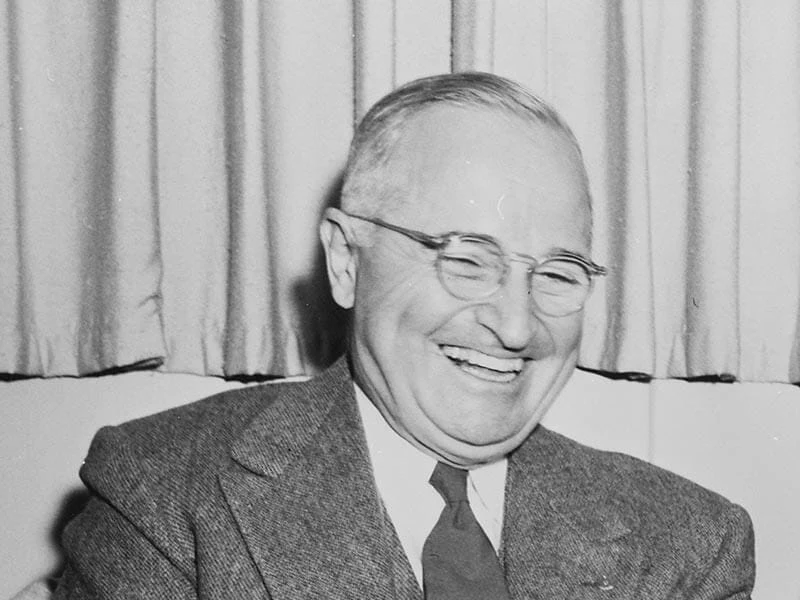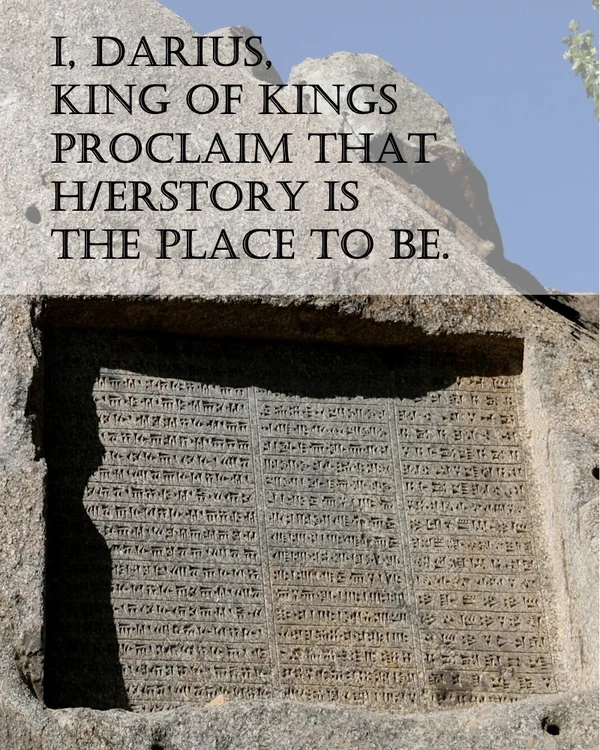I think today, November 5th, there's only one thing people want to know about; how Harry Truman was a crook that stole a bunch of money. That's the relevant Presidential stuff, right?
In February 1975, the band Chicago released a song called "Harry Truman". Posthumously dedicated to President Truman and written in reaction to the Nixon resignation, the song laments the state of American politics and opines for President Truman's brutal honesty.
We'd love to hear you speak your mind, in plain and simple ways. Call a spade a spade, just like you did back in the days.
A slight issue emerges when you understand this is bullshit, hilarious and blatant bullshit. Harry Truman ran one of the most audacious scams on the American people in history, creating a public image of a humble man trying to get by when he was in truth very wealthy - through rather dishonest means.
If, like me, you enjoy popular history, this may surprise you. It is a popular fact that Truman left the oval office a poor man. Like U.S Grant before him, Truman sacrificed so much for his country yet was walked away from the White House with nothing but a $112 pension per month (roughly $1300 for inflation) for his military service. He would not give talks or degrade the office of the Presidency, and was happy to rely on the charity of friends to just barely scrape by.
It's a sad, somewhat pathetic, story - the most powerful man in the most powerful nation in the world reduced to all but begging to survive. A slight issue emerges when you find out that not a single word of this story is true.
The Grain of Truth
Truman's haberdashery business in 1919.
In all great scams, there's an element of truth in them. Truman did struggle with finances for a long time in his life - he became a haberdasher in 1919, but his business went bankrupt in the 1921 recession and trapped him with debts for nearly 15 years.
Truman would become a Judge in 1922 and a salesman 1926 after losing re-election, but his time as a judge had allowed him to establish connections with the Missouri Democratic machine boss Tom Pendergast. Pendergast would get Truman some more jobs, and eventually he backed Truman for the U.S Senate after Pendergast's preferred options all declined.
Truman was blessed to be running against a Republican that opposed the New Deal, and while he ran for his office and a banker named William Kemper, a longtime friend of the Truman family and enthusiastic Democrat, would pay for Truman's debt (likely to avoid Truman being shamed as the broke butt Senator from a broke butt state).
This really wasn't much of an upgrade for Truman. Sure, being a Senator paid a lot and he managed to get out of some of his debts thanks to it, but the Senate didn't pay that much. Adjusting for inflation, it was the low end of triple figures, and he also had to buy a new house to live in both D.C and Missouri. While not broke anymore, he was still pretty far from a rich man.
Harry Truman's good luck
"Is there anything I can do for you?" - Truman
"Is there anything we can do for you? For you are the one in trouble now." - Elanor Roosevelt, informing Truman of Roosevelt's passing.
Franklin Roosevelt was going to die soon in 1944. Everyone knew it. Roosevelt knew, Dewey and his comments about "tired old men" knew it, and the Democratic party bosses knew it. While Franklin Roosevelt liked Henry Wallace, the powerbrokers didn't, and they pressured Roosevelt to swap Wallace for Truman - someone who had been making a name for himself by cutting government graft during the second world war. Roosevelt didn't particularly like Truman, and as a Senator Truman was frequently ignored by the President, but with Roosevelt's death looking imminent, the future was bright for Truman.
Becoming Vice-President didn't alter Truman's fortune notably. The Vice-President is President of the Senate, so he got less of a new salary and more of a nice pay raise, and he had some rotten luck when Congress passed the Congressional Pension in 1946 - after he had joined the White House. So while he was likely grateful, this really didn't change much about his life.
Things changed on April 12th, when Franklin Roosevelt suddenly passed away following a massive and sudden hemorrhage. Truman's fortunes changed dramatically, to say the least. He immediately started earning a salary of $75,000 - which when adjusted for inflation, becomes an eye watering 1.3 million dollars a year, and he got an additional $50,000 in expenses (roughly $800,000). According to Bess Truman's personal papers, made public in 2009, he walked out of the White House in 1953 with around $650,000 or $7.6 million when adjusted for inflation. While the expenses would later become taxable, which means that the President would also need to prove that he had actually used to the expenses money to pay for expenses, for most of Truman's Presidency they weren't so Truman sort of just… took the money. He even wrote to his wife to confirm that they had nearly $200,000 ($2 million today) in the bank from the expenses.
And that's before we get onto his post-presidential ventures - he released a really shitty biography in a publishing deal for a good $600,000 ($7 million), and would go on TV to give an interview where he claimed that former Presidents are "just allowed to starve", for $25,000 (nearly $275,000) in 1958…
Truman's begging
Harry Truman and Edward Murrow. While being interviewed by Murrow, Truman claimed "The United States government turns its chief executives out to grass. They're just allowed to starve (...) If I hadn't inherited some property that finally paid things through, I'd be on relief right now."
Truman's begging was a sad and pathetic sight. The Commander-In-Chief was on TV telling people how poor he was - but that pails in comparison to the begging he was doing in Congress. He was sending letters to the Democratic leaders of Congress, explaining he was barely keeping his head above the water by selling a farm he inherited from his mother (she had lost her land in 1940), and while he totally wasn't begging for a presidential pension, he was going to have to try and cash in on the Presidency more then he already had by going on TV and writing books.
Truman explained in his letters to Rayburn and McCormack that while his book deal was worth $600,000, thanks to darn taxes he actually only got $37,000 ($400,000) from it while he incurred $153,000 in living expenses sitting on his butt and doing nothing but "writing" a shitty book. This is a lie - he actually got $300,000 (3 million) from the book deal, and when adjusted for inflation Truman is claiming that he was spending more then $1.7 million dollars. In these same letters, he says while feeding Congressional leaders this sob story "I don't want any pension and never wanted any because I'll manage to get along."
His obvious begging would pay off - the Former Presidents Act would pass Congress and be signed into law by President Eisenhower in 1958, earning the inflation-adjusted millionaire Truman an extra $20,000 pension ($220,000). The only other living President was Herbert Hoover, who didn't need, claim to need or want a pension but accepted it anyway to avoid humiliating Truman any further then Truman's begging had humiliated himself.
Moral of the Story
Defrauding the government for no reason is awesome
Truman with the Japanese Surrender.














Jump in the discussion.
No email address required.
A man's gotta eat....
Jump in the discussion.
No email address required.
randy
Jump in the discussion.
No email address required.
More options
Context
It's incredibly heroic, imo
Jump in the discussion.
No email address required.
More options
Context
More options
Context